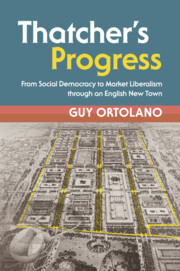2 - Planning
Published online by Cambridge University Press: 08 June 2019
Summary
Chapter 2, “Planning,” examines a consequential moment in urban history, after Jane Jacobs but before OPEC. The question of the future city animated the 1967 competition to plan the most significant project in the world’s leading new towns program, Milton Keynes. Yet the plan that resulted attracted criticism for its banality, and so this chapter recovers the ideas that motivated the city’s planning in order to re-enchant The Plan for Milton Keynes (1970). The story features three characters: the chairman, Jock Campbell, a sixth-generation sugar magnate whose anti-communist campaigns in British Guiana left him wary of grand designs; the planner, Richard Llewelyn-Davies, a welfare state architect-planner whose plan for Milton Keynes propelled him into a thriving global practice; and the visionary, Melvin Webber, an American urban futurist who paradoxically persuaded the new town’s makers that the future could not be known. Together with their colleagues, these figures dared to reimagine both the city and the future, but their refusal of bold designs left a void which eventually became filled by roundabouts and concrete cows.
Keywords
- Type
- Chapter
- Information
- Thatcher's ProgressFrom Social Democracy to Market Liberalism through an English New Town, pp. 69 - 107Publisher: Cambridge University PressPrint publication year: 2019

